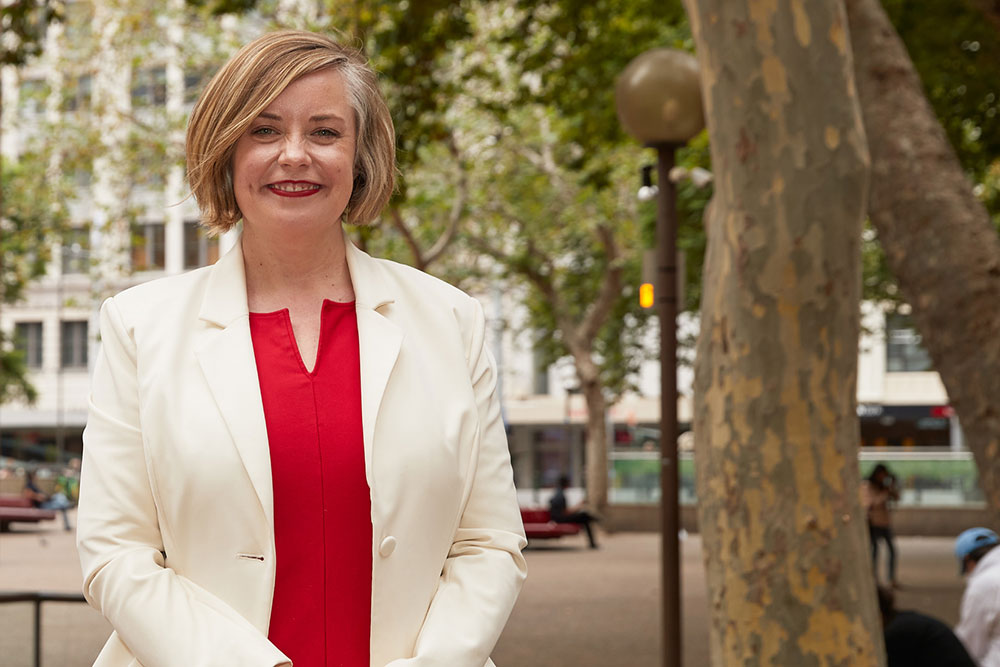
3 November 2021
Progress!
Government exhibits infrastructure rule changes thanks to local government pressure
We had encouraging progress in our fight against costly State-proposed rule changes to infrastructure contributions, with the NSW Government finally agreeing to exhibit them for public, council and property developer comment before proceeding further.
LGNSW has been heading a Statewide council campaign on your behalf and has been joined by almost 70 councils that have already passed mayoral minutes to ensure our communities do not miss out on important local infrastructure contributions from developers under the proposed Environmental Planning and Assessment Amendment (Infrastructure Contributions) Bill 2021.
I welcome this outcome but urge all our councils to review the package and make a submission to the Government to ensure no council is financially worse off under these reforms.
Win! Boost for regional housing, health, and jobs
Councils’ and LGNSW’s calls for more regional housing, as well as health services boosts for people in the regions, have been rewarded with last week’s announcement that the NSW Government will invest $35 million to build new and improve existing critical health accommodation in the regions.
The package is part of the Government’s $200 million Regional Recovery Program and will result in improved accommodation close to regional health facilities.
It will also create new local jobs, a key outcome of LGNSW’s Locally Led campaign to encourage State and Federal support for local government efforts to provide a locally led economic recovery for our communities.
Win! Coastal management plan deadline extended
The Government has provided welcome breathing room to coastal councils by extending the deadline of compulsory Coastal Zone Management Plans by two years.
The plans are a requirement of the Coastal Management Amendment Bill 2021 and will help councils, government agencies and local communities to work together to set a long-term strategy to manage and protect our valuable coastal and estuary areas.
While we welcome the opportunity to improve coastal management processes, many of our councils have been stretched to the limit supporting our communities through bushfires, floods and COVID, so this extension will enable them to develop plans without compromising on the quality of their work because of deadline pressure.
Win! Report recommends increased support for councils to protect local heritage
A Parliamentary report released following a review of the almost 50-year-old Heritage Act takes on board LGNSW calls for greater powers for councils to manage local heritage and broader incentives for ownership of heritage property.
Having visited councils from one end of the State to the other, I know how important our irreplaceable heritage and history is to our communities and how hard councils work to preserve, protect, and promote it for the enjoyment of current and future generations.
The Parliamentary report backs our calls for increased funding for local heritage grant programs, the development of a State-led heritage tourism strategy and the appointment of a dedicated local government representative on the Heritage Council for the first time.
LGNSW will continue to advocate on your behalf to the NSW Government to adopt the report’s recommendations so our councils have greater powers to protect local heritage.
Win! Domestic violence accommodation funding
Our voice has been heard on the need for greater support for victims of domestic violence in our communities, with the NSW Government announcing new social housing and domestic violence funding worth almost $500 million.
The announcement follows calls from LGNSW, the NSW Council of Social Service and other community groups for the Government to prioritise women’s economic security and urgently invest in social housing as part of the recent united Anti-Poverty Week Pink Hi-Vis Recovery campaign.
The NSW Government funding will provide 75 new women’s shelters, taking the total to 161, and be located near support services such as legal, education and employment outlets.
At our 2016 Annual Conference, councils supported development of domestic violence policies and procedures and local training to enhance their capacity to help people in their community.
LGNSW has also fought hard for urgent improvements to social housing, calling in our 2021 NSW Budget submission for the NSW Government to invest in 5,000 social housing units, which would not only tackle the housing crisis for those most at risk in our communities, but also deliver $4.5 billion in economic output and almost 14,000 jobs.
Win! Stronger building industry rules to protect against serious defects
LGNSW has long advocated for stronger regulation of the building industry to protect our communities from being left with a bill for shoddy work, so I welcome new amendments to building legislation that were recently passed in Parliament.
Changes to the Residential Apartment Buildings (Compliance and Enforcement) Act 2020 now provide the NSW Government with additional powers to order developers to rectify building work that could result in a serious defect in a residential apartment building.
Win! Electric vehicle rules to improve take-up of environmentally friendly cars
Councils’ efforts to support greater electric vehicle (EV) use and meet net zero emission targets have been rewarded with the Parliament passing legislation that supports the implementation of the NSW Government's Electric Vehicle Strategy, announced in June 2021.
The legislation enables rebates of $3,000 for electric vehicle purchases, commits to phasing out vehicle stamp duties for electric vehicles, phases in a distance-based road user charging mechanism and supports a $171 million investment in charging infrastructure.
This is a vital outcome for our environment and shows local government’s leadership in addressing climate change. LGNSW is seeking to ensure that councils are involved in decisions relating to the location of charging infrastructure and that councils can access electric vehicle fleet grants.
BACK TO MAIN PAGE